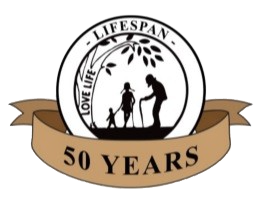S.B. 597 & S.B. 598 – Sen. John Proos
H.B. 5075 – Rep. Tristan Cole & H.B. 5076 – Rep. Jeff Noble
Current Status
S.B. 597 & 598 were introduced on September 28, 2017 and were referred to the Senate Oversight Committee. No hearing has been scheduled on the bills.
H.B. 5075 & 5076 were introduced on October 10, 2017 and were referred to the House Committee on Families, Children, and Seniors. A hearing on the bills was held on November 9, 2017, but no vote was taken. RLM testified in favor of the bills.
Description
S.B. 598 & H.B. 5075 are identical bills that provide patients, patient advocates and families protection against hospitals or doctors gaining guardianship over a patient without providing notice to the family about a hearing. In addition, the bills would required the doctor or medical facility to prove by clear and convincing evidence that the patient advocate or family is not acting in the best interest of the family before a guardian can be appointed. Lastly, S.B. 598 & H.B. 5075 create a rebuttable presumption in law that it is in the best interest of a patient to remain living.
S.B. 597 & H.B. 5076 are also identical bills that will require medical personnel to obtain affirmative consent prior to withholding or withdrawing life-sustaining treatment including but not limited to placing do-not-resuscitate (DNR) orders in a patient’s file.
Background
The number of end of life calls on related issues coming into the RLM Legislative office has steadily increased over the past several years. They now receive more end of life calls than abortion calls. Stories told by numerous people about their loved ones having their authority to make medical decisions for their family member stripped away by the courts because the hospital gained guardianship over a patient without notifying the family seemed unbelievable until the number of similar calls began to increase. Similarly, RLM received several calls about secret DNR orders being placed on patients as well as other forms of life-sustaining treatment being withheld.
Simon’s Law was recently passed in Kansas, named after a special needs baby whose parents discovered a DNR order had been placed in their child’s medical record without their knowledge or permission. Their law requires a parental consent for withholding or withdrawing life-sustaining treatments from minors. H.B. 5076 and S.B. 597 would apply to all patients.
History
In Michigan, a patient advocate law was passed in 1990 and has given patients the opportunity to name someone who can make medical decisions for them in the event they become incapacitated. The law states that a guardian can’t be appointed while the patient has a patient advocate. However, if the family is not told of the hearing and the court is unaware of a patient advocate, guardians are sometimes appointed despite objections from the family. Michigan’s Do-Not-Resuscitate Procedure Act was passed in 1996. The DNR law was designed for those individuals for whom death from cardiac arrest would be a better option given their medical condition or frailty. However, the decision to place a DNR on a patient’s file was always meant to be the patient’s decision, not the doctor’s or medical facility’s.
